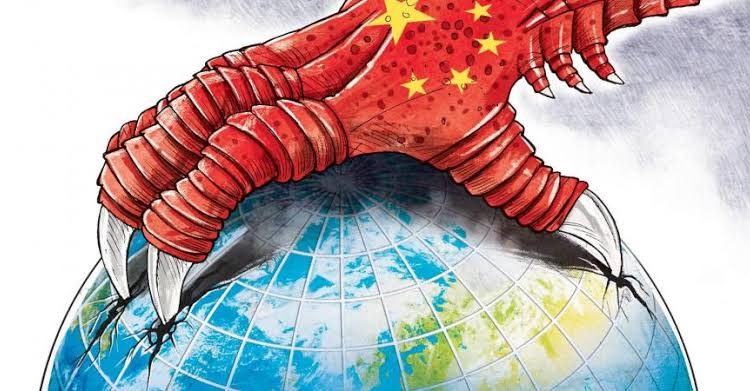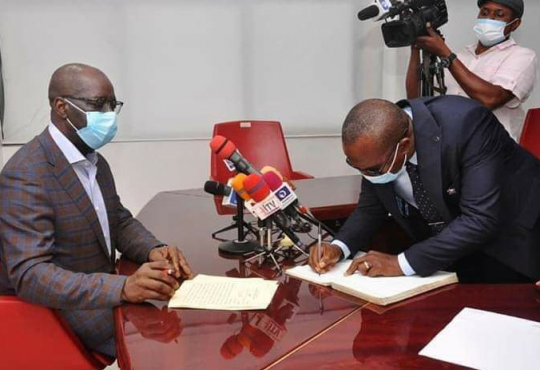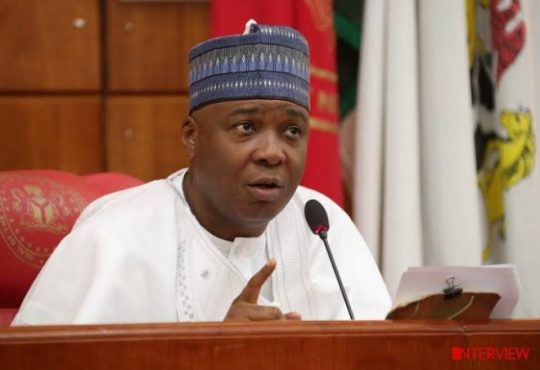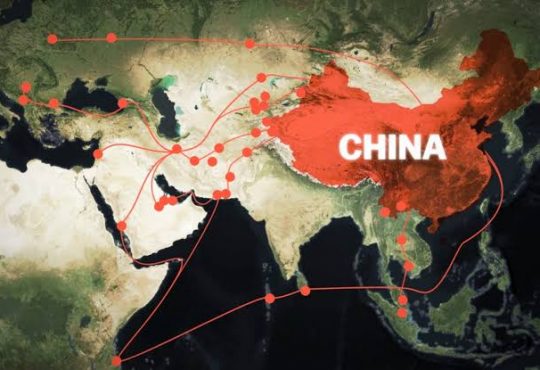
By Lucky Okoedion
Having done my own study of the 85 pages controversial paper titled “How China Lends A Rare Look into 100 Debt Contracts with Foreign Governments”, authored by Anna Gelpern, Sebastian Horn, Scott Morris, Brad Parks, and Christoph Trebesch, and dated March 2021, I hereby conclude that the negative criticism and review given to the research by Huang Meibo & Niu Dongfang as presented in a previous publication, is suspicious because by my analysis, this study is objective, factual and follows best practices. The study provides data to validate the suspicion that many already have about Chinese loans in developing nations, particularly African nations. This study confirms our fears that Chinese loans are aggressively aimed at putting the borrowing nations in a “debt trap” in which China can begin to strong arm the recipient nations into giving diplomatic favours to China, and losing some of their sovereignty to China.
The only defect we noticed in the study is the fact that it was sponsored by agencies of other western nations whose credit or loan arrangement and monetary policy with developing nations have not also adequately proven to be concerned about the interest of developing nations. Hence, one is tempted to suspect that the alarm being raised by the sponsors of this research is simply because they feel that China is beating them at the game of systematically looting and taking advantage of developing nations.
It is therefore clear that there is a new scramble for Africa. We now stand at a crossroad between our old dealings with the west which has not benefited us as expected and our new risky dealings with China the number one disruptor of the world order in the 21st century. We cannot afford to be naive and get reckless in our reliance on foreign aids from the west that are economic traps or get drowned in these new extravagant Chinese loans that are diplomatic traps. We must understand that China’s relationship with us and the relationship that China’s rivals have with us are first designed to satisfy the interest of their own nation and that of their multinational corporations that do business in Africa and pay taxes to their Government. And specifically, China is more interested in having Political and sovereign influence over Africa than in looting our resources.
Having presented our own position on the study, below is the summary at the end of the study, as presented in the paper:
“Our study of Chinese foreign loan contracts reveals a number of new insights. Chinese lenders show considerable ingenuity in adapting and expanding standard contract tools to maximize their repayment prospects, including with lender-controlled revenue accounts, and to protect a broad range of Chinese interests in the borrowing country. The contracts are in tension with narratives of South-South cooperation and belie the claim that CDB is a purely commercial lender—notwithstanding its adoption of many commercial lending practices. Both CDB and China Eximbank are enmeshed in the broader Chinese government investment program, with cross-default and cross-cancellation clauses linking different parts of the program. Links among financial, trade, and construction contracts are pervasive throughout the sample; however, because we do not have access to contracts apart from the loans, we do not analyze such links in depth. We find widespread use of “No Paris Club” and “no comparability of treatment” clauses—that expressly prohibit the borrower country from restructuring their outstanding debts to China in coordination with Paris Club creditors and/or on comparable terms with them. This practice suggests that Chinese state-owned banks are effectively seeking to position themselves as “preferred creditors” exempt from restructuring. More generally, we find that Chinese contracts give lenders considerable discretion to cancel loans and/or demand full repayment ahead of schedule. Such terms give lenders an opening to project policy influence over the sovereign borrower, and effectively limit the borrower’s policy space to cancel a Chinese loan or to issue new environmental regulations. Some of the debt contracts in our sample could pose a challenge for multilateral cooperation in debt or financial crises, since so many of their terms run directly counter to recent multilateral commitments, long-established practices, and institutional policies. Time will tell whether the Chinese government’s commitment to greater coordination and cooperation—as expressed in the G20’s Common Framework—will result in new types of Chinese debt contracts and greater contract transparency. More generally, this study calls attention to the need for substantially greater transparency in sovereign lending, including but not confined to government-to-government loans. Transparency problems abound in the world of sovereign debt and they are not limited to China. Almost no official OECD and non-OECD lenders publicly release the text of their loan contracts. Nor do debtor governments. At the time of our study, Cameroon was the vanishingly rare example of debt transparency in a world of opacity. For this reason, we draw on Cameroon’s debt contracts as a basis for benchmarking. Disclosing all debt contracts, however difficult politically, should become the norm rather than the exception. This would give citizens the ability to hold their governments accountable for the debt contracts signed in their name. Public debt should be public.”
The study is said to have entailed a “systematic analysis of China’s foreign lending terms by examining 100 debt contracts between Chinese state-owned entities and government borrowers in 24 countries around the world, with commitment amounts totaling $36.6 billion. All of these contracts were signed between 2000 and 2020. In 84 cases, the lender is the Export-Import Bank of China (China Eximbank) or China Development Bank (CDB)”
The researchers raised alarm over the fact that Chinese loans could require “waiver of immunity and governing law” from the borrowing country as part of their clause.
And the fact that this was not consistent with “the London-based Loan Market Association (hereinafter “the LMA template”).”
It also cited as foul play the clauses that required the borrowing nations “not to disclose any of the contract terms or related information unless required by law.” because the lack of transparency means that “citizens in lending and borrowing countries alike cannot hold their governments accountable for secret debts.” and other abnormalities that spell trouble.







